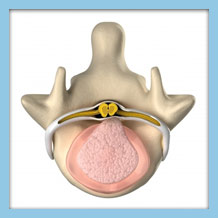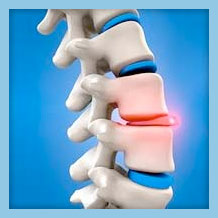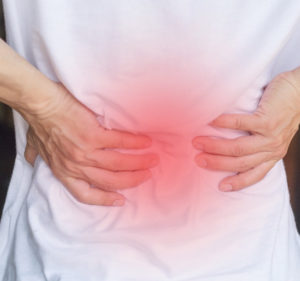

How Do I Know if I Have a Bulging Disc?
Common bulging disc symptoms include numbness and tingling, as well as pain that radiates through either the arms or legs. A bulging disc in the neck will cause symptoms to be felt in the shoulder, arm, and hand, while a bulging disc in the back will affect your lower extremities. There may also be pain felt in the area of the bulging disc.
Not all bulging discs will produce symptoms, but as the condition continues to worsen, the symptoms will begin to intensify until treatment or eventually surgery is required.
Do you have any of these symptoms and think you may be suffering from a bulging disc? We have a quick and easy tool to help gather some information from you to help us determine what your problem is and get you on the road to recovery.
What is the Best Treatment for a Bulging Disc?
Early-stage bulging disc treatment includes rest, anti-inflammatory medications, and ice and heat treatment. If this is not effective then exercises to help strengthen your back will be added to your treatment, along with physical therapy. Only once conservative treatments have been exhausted should surgery be considered.
Orthopedic & Laser Spine Surgery provides a wide range of treatment options for bulging discs and a team of spinal doctors that are experienced in advanced treatment practices.
The real question is: What treatment is best to treat your bulging disc? Use our Treatment Match tool to quickly get started in finding the right treatment for you.

What Are The Bulging Disc Symptoms?
If you recently have been diagnosed with a bulging disc, then it is likely that your symptoms will vary depending on the region of your spine that has been affected. In most cases, patients may have little to no pain and that is because the bulging disc has not reached the herniated disk stage (which causes more pain). Therefore, once the bulging disc has reached the herniation stage, they may experience the following symptoms:
- Pain or tingling sensation on the shoulders, arms, hands, and fingers
- Pain on the lower spine, buttocks, things, and feet
- Difficulty lifting or holding things, and walking
